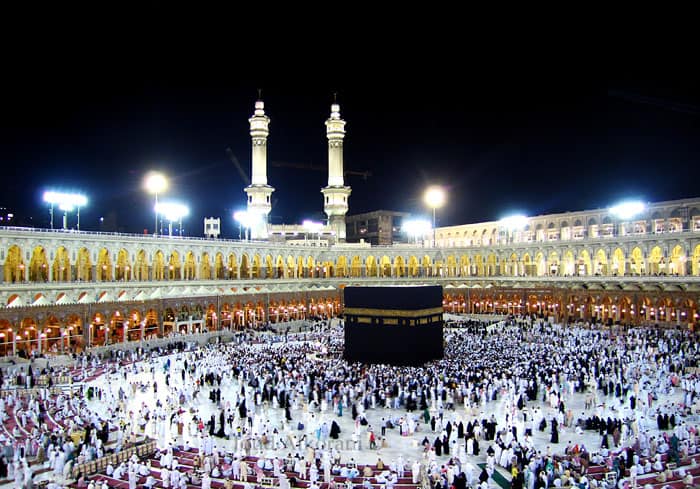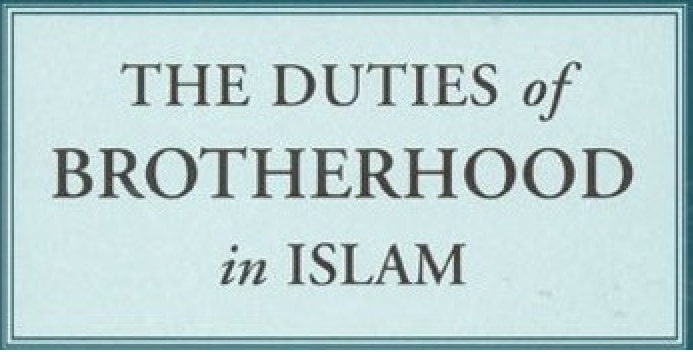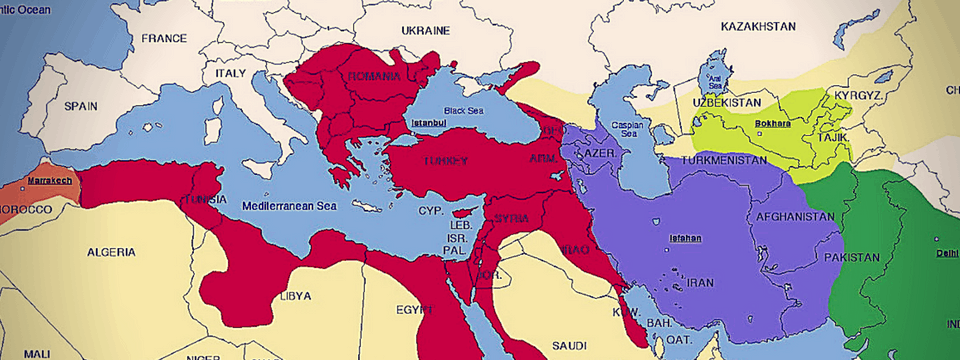What of the first ten days of Dhul Hijjah? Sometimes they come and pass anonymously with Muslims unaware of their importance, let alone knowing that they have begun. Sometimes these days are considered nothing but a countdown to Eid.
Opinion of scholars
Ibn al-Qayim explained that the best nights of the year are the last ten nights of Ramadan while the best days of the year are the first ten days of Dhul Hijjah.
Ibn Taymiyyah was asked and his answer was, “the last ten nights of Ramadan are better in terms of the night and the first ten days of Dhul Hijjah are better in terms of the days”.
Ibn al-Qayyim confirmed this and Ibn Kathir accepted this conclusion.
Significance in the Quran
So sacred are the first ten days of Dhul Hijjah that Allah swears an oath by them when He says in the Quran: “By the dawn; by the ten nights” [89:1-2]. Swearing an oath by something indicates its importance and great benefit.
The dawn is truly a magnificent sign of Allah. It signifies the end of darkness and passing of the night, and heralds the beginning of a new day. So many acts of worship are connected to this time, such as the end of tahajjud prayer, the beginning of fajr prayer and the beginning of fasting.
Similarly, by association, the ten nights are a great sign of Allah. Something so profound, that Allah chose to take an oath by them. Something so important that Allah connected it to the dawn itself.
Ibn Abbas (may Allah be pleased with him) explained that these ten nights are indeed the first ten days of Dhul Hijjah.
Importance in Ahadith
There is an explicit Prophetic tradition narrated by Jabir ibn Abdullah in which the Prophet said: “The best days of this world are the ten days (meaning the ten days of Dhul-Hijjah).”
The hadith was reported by al-Bazzar and many traditionalists considered it authentic.
Ibn Abbas narrated that Rasulullah said: “There is no day wherein any good action is more beloved to Allah Ta’ala than these ten days (the first ten days of Zul Hijjah)”. The Sahaabah (radhiyallahu anhum) enquired: ” Not even Striving in the path of Allah ?” “Not even Striving in the path of Allah,” replied Rasulullah(sallallahu alaiyhi wassallam) , “with the exception of that person who left with his life and wealth (in the path of Allah) and did not return with any of it (i.e. he is martyred)“. (Bukhari)
No other motivation should be needed for us after these words of the Prophet (Peace and salutations be upon him). Jihad is the pinnacle of Islam. The noble act of worship where a servant puts on the line everything that is beloved to him, to make the word of Allah the highest.
Yet this hadith indicates that even better than this is to worship Allah in the first ten days of Dhul Hijjah! Allah has opened every door of goodness to us in these ten days, so be weary not to turn your back on the Mercy of Allah, lest that door is not opened for you again.
It is also narrated from Ibn Abbaas that Rasulullah (sallallahu alaiyhi wassallam) said: “No days are as weighty with Allah and so liked by Him for good deeds than the first ten days of Zul-Hijjah“. Therefore in these days increasingly recite: “La ilaha illallah, Allahu Akbar, Al-Hamdu-lillah, Sub-hanallah.” (Tabraani)
Recommended Acts During these Blessed Days
Generally speaking any act that Allah is pleased with should be done in these days. The primary act to be done abundantly is the tahleel, takbeer and tahmeed as these were the first to be mentioned in the narration Ibn ‘Umar (may Allah be pleased with him) where the Prophet (peace and blessings of Allah be upon him) said: “There are no days that are greater before Allah or in which good deeds are more beloved to Him, than these ten days, so recite a great deal of tahleel (saying Laa ilaaha ill-Allah), takbeer (saying Allahu akbar) and tahmeed (saying al-hamdu Lillah) during them.”
It is reported that once the Ten Days started, Sa’eed bin Jubair, the famous scholar of the second generation would exert himself in excessive worship of Allah.
- Dhikr [Remembrance of Allah swt]
Begin with the Dhikr (remembrance) of Allah as Allah said in the Quran “Recite, [O Muhammad], what has been revealed to you of the Book and establish prayer. Indeed, prayer prohibits immorality and wrongdoing, and verily the remembrance of Allah is greater. And Allah knows that which you do” [29:45]
It is from the Mercy of Allah that he enjoined upon us acts of worship that bring peace and contentment to our hearts and that have an intrinsic enjoyment, as Allah said in the Quran, “Those who have believed and whose hearts are assured by the remembrance of Allah . Unquestionably, by the remembrance of Allah hearts are assured” [13:28]
Increase profusely in the Dhikr of Allah. Ibn ‘Umar and Abu Hurayrah upon the entering of Dhul hijjah would enter the market place and raise the takbeer of Allah. So much so that the entire market place would resound with the glorification and praise of Allah.
Ibn Umar narrates that the Prophet (Peace and Salutations be upn him) said: “There are no days during which good deeds are greater are beloved to Allah than these ten days. So recite more often the tahleel, takbeer and tahmeed.”[ Reported by Imam Ahmed]
- Fasting
The Prophet (sallallahu alaiyhi wassallam) has said, “One fast during these days is equal to the fasting of one complete year, and the worship of one night during this period is equal to the worship in the “Lailatul-Qadr.” (Tirmidhi)
Abu Qatadah reported that the Prophet (sallallahu alaiyhi wassallam) said: “I have hope in Allah Ta’ala that the fast of Arafaat will be an atonement for the sins of the past and the forthcoming year.” (Tirmidhi)
Abu Qatadah narrates that the Prophet (Peace and salutations be upon him) said regarding the fast of the day of Arafah, “It expiates the sins of the past year and coming year.” [Sahih Muslim]
It is indeed reported from Hunaydah ibn Khalid that one of the wives of the Prophet stated that the Prophet used to fast the first nine days of Dhul Hijjah [Al-Nasai and Abu Dawood]
Abdullah ibn Amr reported that the Messenger of Allah (peace be upon him) said, “The fast and the Qur’an are two intercessors for the servant of Allah on the Day of Resurrection. The fast will say: ‘O Lord, I prevented him from his food and desires during the day. Let me intercede for him.’ The Qur’an will say: ‘I prevented him from sleeping at night. Let me intercede for him.’ And their intercession will be accepted.”
- Sacrifice
Sacrifice, for it is the ancient ritual of our forefather Ibrahim and was ordered for our Prophet (Peace and salutations be upon him) when Allah said “So pray to your Lord and sacrifice [to Him alone]” [108: 2]
The Prophet said: “The son of Adam does not perform any actions on the day of sacrifice which is more pleasing to Allah than the shedding of blood. The sacrificed animal shall come on the Day of judgment with its horns, hair, and hooves. The sacrifice is accepted by Allah before the blood reaches the ground…” [Tirmithi, Ibn Majah]
- Prayer
Increase greatly in your prayer for it is related of Saeed ibn Jubayr that he would increase in night prayer and good deeds during these ten days so much so that people could not bear the example he was setting and would ask him to relent.
- Recitation
Recite the Quran for it is the best form of Dhikr and the shortest route to draw closer to Allah. Set yourself an aspirational target for these days as you did set yourself a target for Ramadan.
- Charity
Donate in charity for charity has been linked to bravery while miserliness has been linked to cowardice. The Prophet (Peace and Salutations be upon him) would invoke, “O Allah, I seek refuge in you from miserliness and cowardice.”
- Takbeers:
The Takbeer at-Tashreeq is wajib for men to recite, and mustahab for women, at least once after every fardh prayer from Fajr of the 9th of Zulhijjah until Asr time of the 13th of Zulhijjah.
It is: “Allahu akbar, Allahu akbar, la ilaha ill-Allah; wa Allahu akbar. Allahu akbar, wa Lillahi’l-hamd (Allah is Most Great, Allah is Most Great, there is no god but Allah; Allah is Most Great and to Allah be praise),”
Men are encouraged to recite these phrases out loud and women quietly.
It must be noted the two types of takbeer to be made in these ten days. The generic takbeer which is made from the Maghrib of the first of Dhul hijjah until the tenth. And the specific takbeer which is made from the Fajr of the ninth of Dhul hijjah (the day of Arafah) until the Asr of the thirteenth of Dhul hijjah. The wording is flexible including statements such as those stated by Ibn Masood, “Allahu Akbar, Allahu Akbar, La ilaha illa Allah, Allahu Akbar, Allahu Akbar wa lillahil-Hamd.”
Conclusion
It is the responsibility of every Muslim, man and woman, old and young, to revive these ten days until they become for our community like the last ten nights of Ramadan.
Our lives are short and our accountability great. We cannot afford to let golden moments like these pass by without expending ourselves in the worship of Allah.
May Allah make this task easy for us and accept our deeds in these amazing few days.
[Cross posted from the HTB website]
![]()














![Imam Malik – Proof of the Community [Biography]](https://www.hizb-australia.org/wp-content/uploads/2016/05/Silhouette-Of-Man-Praying-At-Sunset-shutterstock-800x430.jpg)


